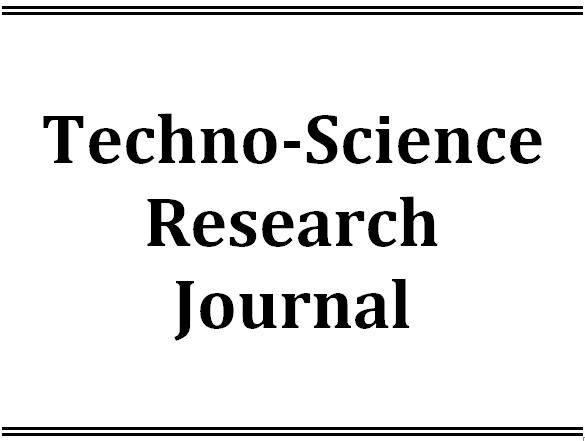Latest Issue
Empowering Education with Online Khmer Handwritten Text Recognition for Teaching and Learning Assistance
Published: August 30,2025Undergraduate Student Dropout Prediction with Class Balancing Techniques
Published: August 30,2025Status of Seawater Quality at Koh Rong Island, Sihanoukville, Cambodia
Published: August 30,2025Low-Complexity Detection of Primary Synchronization Signal for 5G New Radio Terrestrial Cellular System
Published: August 30,2025Word Spotting on Khmer Printed Documents
Published: August 30,2025Tuning Hyperparameters Learning Rate and Gamma in Gym Environment Inverted Pendulum
Published: August 30,2025Examining Passenger Loyalty in Phnom Penh Public Bus System: A Structural Equation Modelling Approach
Published: August 30,2025Prediction on Load model for future load profile of Electric Vehicle charging demand in Phnom Penh
Published: August 30,2025Economic Study on Integrating PV-DG with Grid-Tie: Case Study in Cambodia
Published: August 30,2025Utilization of Ride-Hailing Services in Asian Developing Cities: Phnom Penh Case Study
-
1. ITC
Academic Editor:
Received: January 22,2024 / Revised: / Accepted: January 22,2024 / Available online: June 01,2020
The growing popularity of transport services via ride-hailing apps (RHAs) has posed major debates for transport researchers and planners in many cities worldwide. In Asia, there remains limited information and data about the characteristics of RHA users. This paper investigated the factors affecting users’ utilization rate of RHA services. Zero-Inflated Ordered Probit Model (ZIOPM) was applied with data collected from 1,108 citizens (87.5% aged 12-29) in Phnom Penh, December 4-11, 2018, as a case study. It was found that approximately 55.0% of respondents were identified as non-users of RHAs. Three aspects that majority of users (78.6%) liked about RHAs were easy to find a ride, lower fare, and safety. Users traveled via RHAs for various trip purposes including home (18.1%), shopping (18.1%), social/private (15.7%), and work/school (24.5%). Modes that users used to travel via RHAs were auto-rickshaws (Indian Bajajs: 82.5% and Remorks: 6.9%), Taxis (5.5%), and motorcycles (2.9%), cars (0.8%), and others (1.4%). Modeling results showed that individuals with a higher income, higher daily travel cost, and longer time of using a smartphone were more likely to use RHAs more frequent than their counterparts. Those with older age and a motorcycle were likely to use RHAs less frequently. Results further showed that higher educated individuals were 6.4% more likely to use RHAs, while higher-income individuals were 4.3% less likely to use RHAs. The predicted probability of the ZIOPM was estimated to be within ±3.0%, compared with the actual probabilities of frequency of using RHAs. The findings from this study added further knowledge about characteristics of RHA users and about factors influencing on utilization rate of transport services via RHAs; especially among young citizens, who would be the potential RHA users.

